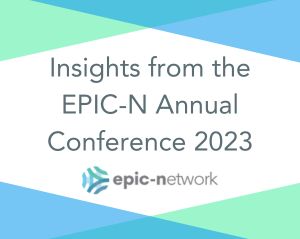
From 12 to 14 June 2023, The Education Partnerships for Innovation in Cities (EPIC) Network hosted its annual conference which was attended by 226 people online. The workshop offered an opportunity for university representatives, local government officials, and organizational partners to learn more about adopting, adapting, and/or enhancing the EPIC Model for their institutions and communities.
This year, the objectives of the conference were to: Review EPIC-Network Progress; Illustrate the Impact of the EPIC-Network; and Highlight Resources for Members of EPIC-N.
More than 30 sessions were showcased over the three days of the conference and these highlighted work, progress, and lessons from EPIC programs across the world. The conference opened with the EPIC-N Director, Joel Rogers providing an overview of the EPIC-N Global network as well as highlights from the four regions where EPIC networks exist (USA, Africa, Asia and Latin America and the Caribbean- LAC). This was followed by a variety of sessions whose topics ranged from demonstrating return on investment (ROI), sustainable development goals (SDGs) in action, and EPIC refresher training to testimonials from students on how their life skills and perspectives changed through being involved in EPIC projects.
Of interest were the sessions focusing on the EPIC Africa, Asia, and LAC regions. Unlike the USA, where the EPIC model originated and has been operating for the past 10+ years with thousands of programs across the country, the EPIC Africa, Asia, and LAC Networks are the ‘new kids on the block’. Having been established in 2017, 2020, and 2021 respectively, these regional networks and programs have taken off well and have been able to adopt the EPIC model to suit the different contexts found in these regions.
Mzime Murisa, a program specialist from START, who is also the EPIC Africa Regional Coordinator, moderated the session on EPIC Africa which showcased EPIC projects from 4 African cities. These are Durban in South Africa, Gaborone in Botswana, Lusaka, and Zambia, and M’bale in Uganda. The session opened with a short overview from the EPIC Africa Interim Co-chair, Sean O’Donoghue who explained the context of higher education in Africa which undergirds the environment under which the EPIC Africa regional programs are run. Then, two representatives from ‘Friends of Africa’ provided an overview of the journey that the network has taken since its inception to date as well as some of the reasons why they partner with the network. These were Tony Socci from the US Environmental Protection Agency that works with the US National Science Foundation (NSF) and Oscar Ivanova who is the Africa Regional Liaison at UNEP’s Global Adaptation Network (GAN). Representatives from the cities included Durban (Smiso Bhengu), Lusaka (Dorothy Ndhlovu, Bwalya Funga, and Gilbert Siame), Gaborone (Hillary Masundire), and M’bale (Andrew Were, Bridgette Makiwa, and Daniel Woniala). Additionally, students from Lusaka provided testimonials on how the EPIC programs they were involved in equipped them with practical experience and life skills engaging and working with communities to solve real-life issues on the ground.
The recording and presentations for the EPIC Regional and other sessions are available on the conference app, the Whova event page. (Event invitation code: yq4u5cgo5b). The event can also be accessed on the Whova Mobile App: Download Link which provides a platform to interact with others using a smartphone in the app.
About EPIC
The Educational Partnerships for Innovation in Communities (EPIC) Model provides an innovative way to harness both university and municipal resources to address pressing local community needs related to climate adaptation, resilient development, and economic and social change. EPIC-N accomplishes this through fostering collaboration between universities and local governments that harnesses the power of university students to work together with local community leaders and NGOs to solve real-world problems using transdisciplinary approaches. While the ultimate focus of EPIC-N is in translating knowledge and skill into policy and practice, the EPIC model simultaneously prepares the next generation workforce through learning-centered approaches that develop practical skills within academic training.
To learn more about EPIC visit the EPIC-N webpage and the network’s facebook page.


